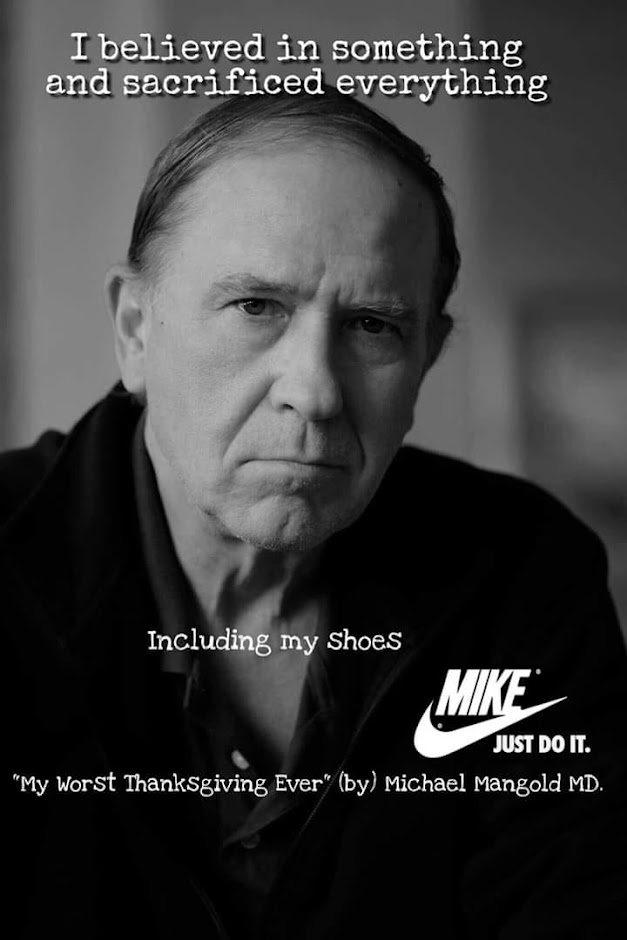We're at Lees-McRae College in Banner Elk, NC today (Sunday, June2) studying physics and biology through Landry Academy. Yesterday was whitewater rafting day on the Wautaga River (pics to follow as soon as we order them. I didn't bring my cellphone for obvious reasons). Within four days, Angie and I had two extremely opposite experiences with 20-somethings (Generation Y'ers) which illustrate our despair with this country and also our hopes for restoration.
But first, a few lessons from whitewater rafting day:
1. Never wear jeans if there is a chance of them getting wet. Jeans will get wet from rafting. I knew this from my one prior experience in Boseman, Montana and from being an avid ultralight backpacker (
www.whiteblaze.net).
2. Wear scuba booties instead of athletic shoes.
3. Use waterproof sunscreen. Especially if you are white, balding, and haven't seen the sun in six months.
4. If the expedition leaders offer you a free t-shirt at the start of the trip, take it. Pride is cold.
Last Wednesday, the last day in our house, I took Angie out to eat at Uno's. While a corporate restaurant, you can find food that nourishes instead of fills. We met three Generation Y'ers working there: two females and our server who is male. For the sake of brevity, I am going to combine them into one umbrella person I will call "Jenny Wai." I know it's not nice to generalize especially while talking about negative aspects of a population, but I'm sure anyone who has to deal with them can relate. And every experience related here is true, word-for-word if in quotes.
When we explained to Jenny that we gave up almost everything intentionally and intended to tour the country before heading to Nicaragua, Jenny wanted to know if Nicaragua was a city or a country. We said it is a country and asked her if she knew where it was. "Europe," she replied. Really, it's not, Jenny. It's in Central America. "Well, I was close," she said as if we just kicked her in the head, holding her palms apart about 8 inches. Probably because on the last atlas she looked at, they WERE 8 inches apart.
Jenny graduated high school last year and is taking a year off before she heads to college. What does she intend to study? "I don't know. I like everything. Like maybe film making. Or computers. I'm having a hard time narrowing it down." How about cartography, I asked (heck, I am known for my sarcasm). "Oh yes, that's possible. I like everything." Do you like working here? "It's a job. I'm going to leave in a year to go to college."
Fast forward three days. After a great time on the Wautaga River, we were referred to a restaurant in Boone, NC by our raft guide Joshua. The restaurant is Hob Nob Farm Cafe (
http://hobnobfarmcafe.com) and our server was a college student named Sophia. True name and very appropriate. That will be my nickname for all of the Gen Y'ers who have goals and some sense that there is a whole world out there that needs exploring and healing. She attends Appalachian State University. After high school and before starting college, she spent a year in the Peace Corps in Uganda. SHE knows where Nicaragua is. She understands that people there can live on $1 a day (she did it herself), and she knows that we can make things better for people. I will leave that "better" intentionally vague for now: first because it is dependent on each person's ability to interact with the world and second because I have my own concepts of to make the world better which I love and which I have developed over years of glorious and painful trial-and-error.
Sophia and her friend Emily (another server we talked to), renewed our hope for the future. The fertile ground for their growth was not the university but rather their employer, Hob Nob Cafe. When we asked Sophia if she liked working there, she replied with exuberance "I absolutely love my employer." Briefly, the owners grow most of their own food for the restaurant. For the rest, they buy from local organic farmers. Servers are limited to 8 so that each position is coveted by the local candidates. Employees are encouraged to make the cafe better and rewarded for their creative ideas. They are paid well since the cafe refuses to take credit or debit cards. The 2% fee they save goes back into the local economy instead of to the large banks that control the U.S. economy.
I'd like to thank Sameer, a college professor from Florida who was visiting here and who let Jon play on his tablet while I wrote this blog. I didn't even ask him: he just did it on his own. There is hope: http://wise.fau.edu/~hinduja/.

